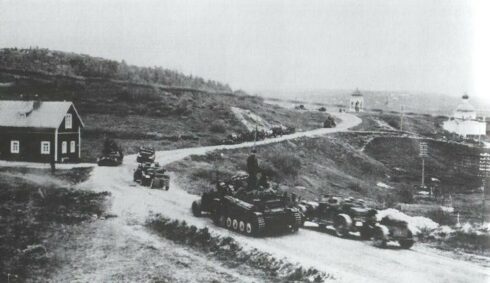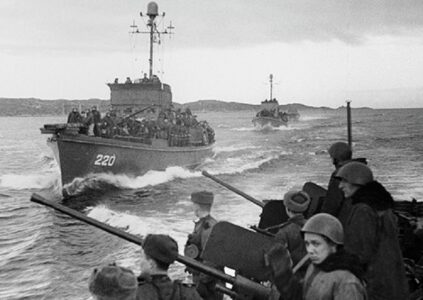The Unknown War is an American 20-part series that documents the World War II conflict between Nazi Germany and the Soviet Union.
Today, SouthFront shares the 8th part of the series titled “War in the Arctic”. This part highlights the struggle in the Artics, one of the harshest battlefields of WWII, with a special focus on the Soviet port of Murmansk.
The strategic port was the main destination of convoys carrying arms and ammunition from the U.S. and the UK to the Red Army.
The Nazis attacked Murmansk on June 29 of 1941. They planned to capture Murmansk within a month but ran into difficulties. By November 17, the attack, dubbed Operation Silver Fox, had ended with a catastrophic defeat for the Germans.
While the Germans continued to attack convoys heading to Murmansk, the allies managed to deliver some 15 million dollars worth of supplies from the U.S., UK, and Canada to the port, Including 10,000 tanks, 18,000 airplanes, equipment for heavy industry and medical supplies.
Soviet pilots and sailors made great sacrifices to secure the strategic Arctic port and support the efforts of their allies.
October 7 of 1944 marked the start of the Petsamo–Kirkenes offensive by the Red Army. With the support of the Arctic Fleet, Pechanga was liberated after fierce fighting. On October 21 the troops reached the Norwegian border, and on October 25 Kirkenes was liberated. The offensive marked a significant victory for the allies in the Arctic.
MORE ON THE TOPIC:






“the germans continued to attack convoys heading to murmansk”… which they did with naval vessels (both surface and sub) that they built after signing the anglo-german naval agreement in 1935. the previous versaille treaty from the first world war prohibited them from doing so.
imagine the incredible amount of historical artifacts that should be cataloged by underwater film teams. perhaps in a better future.
the basics of the age of the exceptionalism and the new world that emerged after wwii where the allied forces joined together to fight nazi germany. that old world is over long time ago, even today we are departing from the age of the exceptionals of the “atlanticist”. the new age belongs to asia, and the sooner you remove the exceptionals from your land and resources, the better would you enjoy a new golden age. and dont forget to remove all their fake sciences, religion, and philosophy also.
today is a good day for killing orcs…heheheeh
if you kill them, who are you going to give a blow jobb to? heheheeh!
taliban and houthi sodomize amerikunts—only superior jew jizz can cure amerikan mental illness